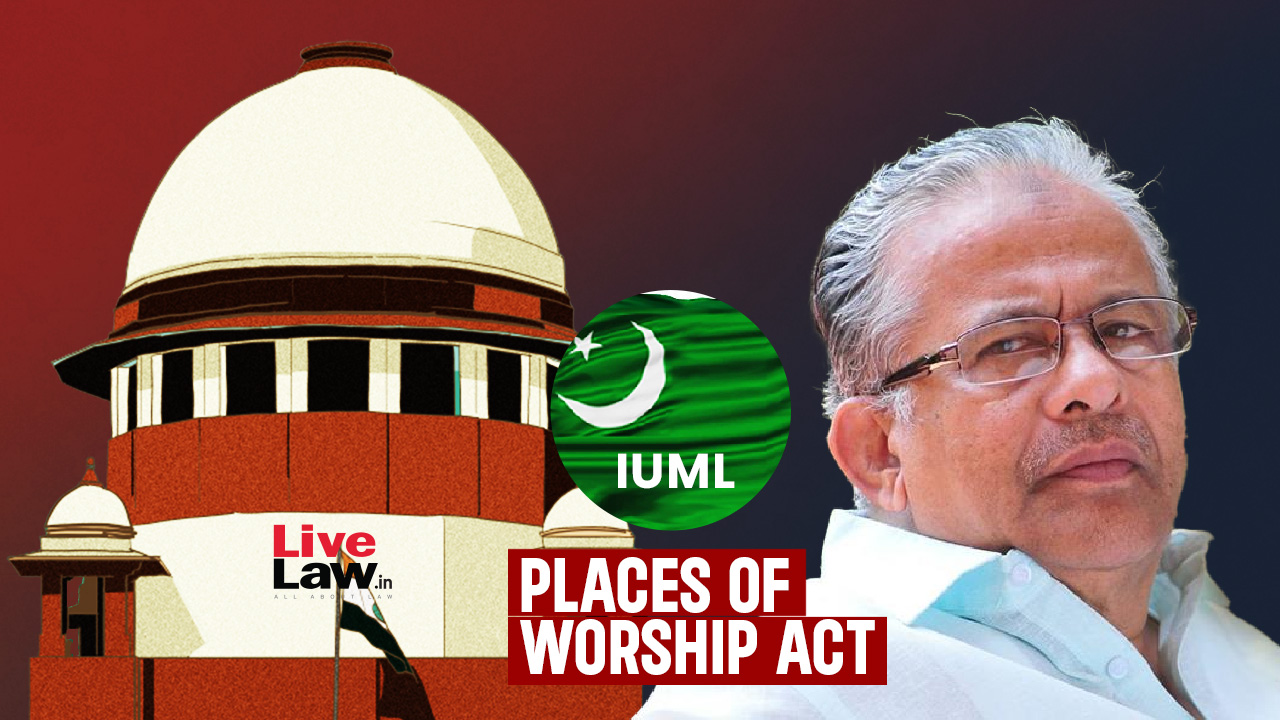 |
|
The Indian Union Muslim League (IUML) has filed an intervention application before the Supreme Court, advocating for the Places of Worship (Special Provisions) Act, 1991. This Act, enacted 33 years ago, aims to safeguard the secular character of India by prohibiting the alteration of places of worship as they existed on August 15, 1947, the day India gained independence. The IUML's intervention, spearheaded by General Secretary and Kerala MLA PK Kunhalikutty and Lok Sabha MP ET Muhammed Basheer, argues that the Act's consistent implementation is crucial for maintaining religious harmony and preventing future conflicts. The application emphasizes the Act's two core objectives: preventing the conversion of places of worship and maintaining their religious character as it stood on the pivotal date of August 15, 1947. This date is highlighted as signifying India's emergence as a secular, democratic nation, guaranteeing equal rights to all religious denominations. The IUML's plea underscores the significance of preserving the status quo of religious sites as a cornerstone for fostering unity, peace, and mutual respect within India's diverse society.
The recent tragic events in Sambhal, Uttar Pradesh, serve as a stark reminder of the Act's relevance, according to the IUML. The application directly links the lack of effective implementation of the 1991 Act to the Sambhal incident, where six young lives were lost. The IUML contends that had the Act been rigorously enforced, such incidents could have been avoided, underscoring its potential role in preventing religiously motivated violence and maintaining social order. Furthermore, the IUML highlights the increasing number of lawsuits related to places of worship as a clear indication of the very mischief that the Act intended to prevent. The application thus positions the 1991 Act as a crucial instrument for conflict resolution and the preservation of communal harmony in India. The matter is currently before a Supreme Court bench comprising Chief Justice of India Sanjiv Khanna and Justices Sanjay Kumar and KV Viswanathan.
The IUML's intervention is not an isolated one. Several other parties have also filed intervention applications, including the Gyanvapi Mosque Managing Committee, Maharashtra MLA Dr. Jitendra Satish Awhad (NCP), the Communist Party of India (Marxist), the Mathura Shahi Idgah Masjid Committee, and Rajya Sabha MP Manoj Jha. Each of these applications emphasizes the importance of upholding the 1991 Act for various reasons. The Gyanvapi Mosque Managing Committee, a key stakeholder given ongoing legal challenges to the mosque's existence, highlights the Act's protection against attempts to alter its religious character. MLA Awhad focuses on the fragile peace in the Mumbra-Kalwa region and warns that weakening the Act could destabilize the progress made toward inter-community harmony. The CPI(M) application similarly stresses the Act's role in maintaining India's secular fabric and preventing potential conflicts rooted in historical disputes. The Shahi Idgah Masjid Committee seeks intervention due to the potential impact of the Supreme Court's decision on its own situation. MP Manoj Jha argues that the Act reflects the obligations of a secular state and reinforces India's commitment to religious equality, thereby rendering the need for Supreme Court intervention or a declaration of unconstitutionality unnecessary.
The main petition, Ashwini Kumar Upadhyay v. Union of India, filed in 2020, challenges the validity of the 1991 Act. The Union Government, despite several extensions, is yet to file its counter-affidavit. This ongoing legal battle highlights the critical juncture at which India stands regarding its commitment to religious harmony and the protection of its secular identity. The Supreme Court's upcoming decision on the matter holds immense significance, not only for resolving the current legal challenges but also for setting a crucial precedent regarding the future implementation and interpretation of the Places of Worship Act. The arguments presented by the IUML and other interveners underscore the far-reaching implications of this case for India's social fabric and the ongoing need for a strong legal framework to protect religious freedom and prevent communal tensions. The outcome will undoubtedly influence the trajectory of interfaith relations and the nation's commitment to secular principles in the years to come.
